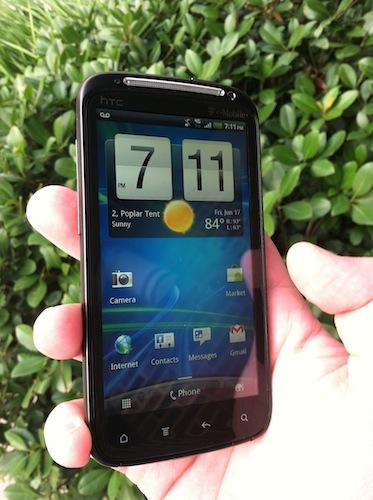
Building upon the success of flagship Android phones like the EVO 4G, and ThunderBolt, HTC's at it again with the Sensation 4G. Available now at T-Mobile, the phone is awesome on paper: 1.2 GHz dual-core Snapdragon processor, 8-megapixel camera with 1080p HD video recording capabilities, and Android 2.3 with HTC Sense 3.0, just to name a few of the high-end specifications. It's feature-packed, that's for sure, but in today's mobile world, Android phones launch on a weekly basis. Does it distinguish itself enough to stand out in a green sea of Androids?
On aesthetics alone, the HTC Sensation 4G takes home the gold medal. Simply put, it's a beautifully crafted device. The battery cover is a combination of metal and plastic (to allow for optimal signal strength), and doubles up as the sides and earpiece grille for the phone itself.
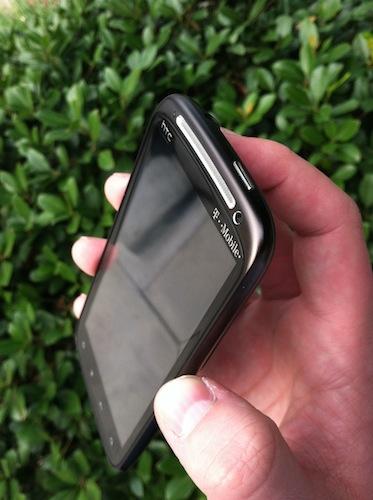
Hitting the scales at 5.2 ounces, the Sensation is thin enough to throw into a tight pair of jeans or a side purse pocket. The 4.3-inch curved qHD display offers 540 x 960 pixels, and is vibrant with no pixelation issues. The curved display isn't really noticeable unless your finger grazes over the sides, the top, or when pressing the capacitive buttons at the bottom.
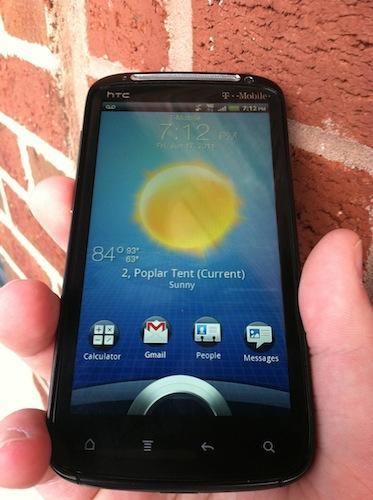
Since it's a flagship HTC smartphone (for this month, at least), the Sensation 4G ships with Android 2.3 (Gingerbread) and version 3.0 of HTC's popular Sense user interface. Though 3.0 is more of an evolutionary bump from 2.0 (the version found on the Inspire 4G, ThunderBolt, and a few more), it offers new features like a revamped lockscreen, a new notification bar, and minor changes to the menu structure, plus some features from Sense 2.0 like HTC Hub access and the enhanced personalization menu
Despite the improvements in Sense 3.0 and the awesome specifications that the Sensation has, I was surprised to see lag present. Chalk it up to the fact that Sense (particularly the latest iteration) is resource-intensive with its eye-catching transitions, but for a device with a 1.2 GHz dual-core processor, it's noticeably slower than some of its competitors. For an untrained eye, it won't be too frustrating, but those used to the speeds of devices like the T-Mobile G2x, Samusng Galaxy S II, and even the similarly-spec'd HTC EVO 3D will notice small delays from opening the app drawer to scrolling through the gallery. It's manageable, but it's unfortunate to see. I expected more from one of HTC's high-end smartphones.
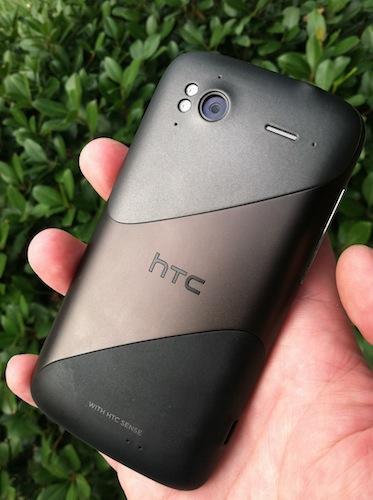
Rocking an 8-megapixel camera with HD video recording, picture quality was very impressive. Colors were natural, and even in low-lit situations, the camera performed well thanks to the dual-LED flash. Editing options include various scenes and the ability to modify the image adjustment, white balance, ISO, and resolution. Sensation shoots video in 1080p, and while the video quality was decent, the audio appeared to be a bit brash and choppy.
HTC packages the Sensation 4G with a 1,520 mAh battery, so you can expect average battery life. With moderate use like calling, text messaging, browsing the web, and downloading apps, I was regularly able to make it into the evening before the low battery warning flashed across the screen. If you're a hard-core user, you'll probably require a charge by mid-afternoon.
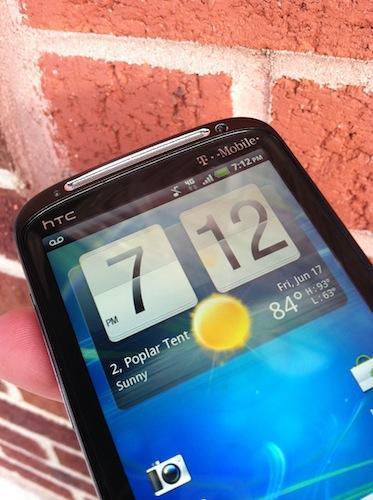
It's clear that calling isn't the Sensation's best feature. Even in areas with strong service, call quality left a lot to be desired. The earpiece was a bit muffled at the loudest volume, and I noticed quite a bit of static and excess feedback during my calls. Some of my callers reported some distortion on their end as well. When I took the Sensation to a T-Mobile dead zone in the Charlotte metro area, I was able to maintain the call, though the call was very choppy with a lot of static.
There have been scattered reports of a "death grip" issue, similar to what plagued the GSM variant of Apple's iPhone 4. I haven't been able to replicate, though I'd caution that every smartphone on the market today will experience some level of signal attenuation (that is, the signal will drop) when you hold it like a sumo wrestler.
Despite it only being able to attain a theoretical peak of 14.4 Mbps, the Sensation's HSPA+ data speeds were pretty impressive. In testing, it achieved download speeds between 3.70 and 7.05 Mbps, with upload speeds between 1.05 and 2.30 Mbps. Webpages loaded quickly and apps downloaded with ease, though I noticed that the Sensation rotated between 4G (HSPA+) and 2G (EDGE) in historically strong T-Mobile areas within Charlotte.
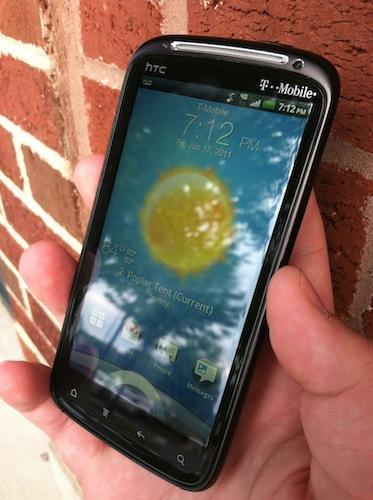
The HTC Sensation 4G is the most beautiful Android phone out there, and rivals the Apple iPhone 4 in terms of build quality. But aesthetics are only half of the equation. It struggles at times in the call quality department, and signal strength fluctuates too much. Perhaps more troubling, it's laggy in comparison to other top Android phones like the Samsung Galaxy S II, which is disappointing given its status as a dual-core powerhouse. Despite the issues, it's still one of the best Android smartphones on T-Mobile, and is an excellent alternative for those that don't like the stock Android build that comes on the T-Mobile (LG) G2x.
What's Good: Beautifully designed; fast web speeds despite only supporting a maximum speed of 14.4 Mbps; decent battery life.
What's Bad: Sluggish at times; signal strength fluctuates despite being in the same spot; call quality could be better.
The Verdict: The HTC Sensation 4G is the most beautifully designed Android phone on the market today, but it suffers from lag that no dual-core device should have.